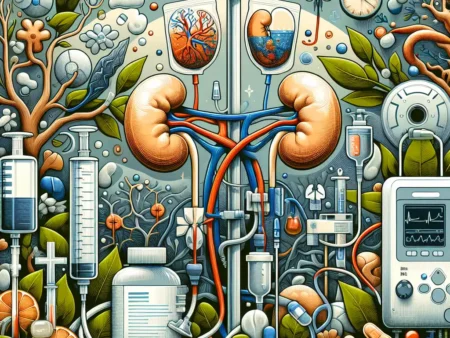Terapi Plasma adalah metode pengobatan COVID-19 dengan menggunakan plasma dari pasien yang sembuh untuk membantu pemulihan pasien lainnya.
Kabar Medis: Terapi Plasma untuk Pasien COVID-19
-
Table of Contents
- Introduction
- Understanding Plasma Therapy
- What is Plasma Therapy?
- How Does Plasma Therapy Work?
- Evidence of Effectiveness
- Plasma Therapy in Indonesia
- Implementation of Plasma Therapy
- Challenges and Limitations
- The Way Forward
- Increasing Plasma Donations
- Improving Infrastructure and Resources
- Conclusion
Introduction
The COVID-19 pandemic has had a significant impact on the healthcare system worldwide, including in Indonesia. As the number of cases continues to rise, medical professionals are constantly searching for effective treatments to combat the virus. One potential therapy that has gained attention is plasma therapy, also known as convalescent plasma therapy. This article will explore the concept of plasma therapy and its potential benefits for COVID-19 patients in Indonesia.
Understanding Plasma Therapy
What is Plasma Therapy?
Plasma therapy involves the use of convalescent plasma, which is the liquid portion of blood collected from individuals who have recovered from a specific infection. In the case of COVID-19, convalescent plasma is collected from individuals who have successfully fought off the virus and developed antibodies against it.
How Does Plasma Therapy Work?
When a person recovers from an infection, their body produces antibodies to fight off the invading pathogen. These antibodies are present in the plasma, which can be transfused into another individual to help them fight the infection. The antibodies in the convalescent plasma can neutralize the virus and boost the recipient’s immune response.
Evidence of Effectiveness
Plasma therapy has been used for over a century to treat various infectious diseases, including the Spanish flu, Ebola, and SARS. While it is not a guaranteed cure, several studies have shown promising results in the context of COVID-19.
A study conducted in China involving 103 COVID-19 patients showed that those who received convalescent plasma had a higher rate of clinical improvement compared to the control group. Another study in the United States found that plasma therapy reduced the mortality rate in severely ill COVID-19 patients.
Plasma Therapy in Indonesia
Implementation of Plasma Therapy
In Indonesia, plasma therapy has been approved by the Ministry of Health as an experimental treatment for COVID-19 patients. The Indonesian Red Cross Society (PMI) has been actively involved in collecting convalescent plasma from recovered patients and distributing it to hospitals.
Challenges and Limitations
Despite the potential benefits, plasma therapy faces several challenges in Indonesia. One major challenge is the limited availability of convalescent plasma. The number of individuals who have fully recovered from COVID-19 and are eligible to donate plasma is relatively small compared to the number of active cases.
Another challenge is the need for proper screening and testing of potential donors to ensure the safety and efficacy of the plasma. This requires adequate resources and infrastructure, which may be lacking in some regions of Indonesia.
The Way Forward
Increasing Plasma Donations
To overcome the challenge of limited plasma availability, it is crucial to encourage more COVID-19 survivors to donate plasma. Public awareness campaigns can be conducted to educate recovered patients about the importance of plasma donation and its potential to save lives.
Collaboration with various organizations and institutions can also help streamline the plasma donation process. For example, partnerships with universities and research institutions can facilitate the identification and recruitment of eligible donors.
Improving Infrastructure and Resources
To ensure the safe and effective use of plasma therapy, it is essential to invest in the necessary infrastructure and resources. This includes establishing dedicated plasma collection centers equipped with proper screening and testing facilities.
Additionally, training healthcare professionals on the proper administration of plasma therapy and monitoring the recipients’ response is crucial. This will help maximize the potential benefits of plasma therapy and minimize any potential risks.
Conclusion
Plasma therapy holds promise as a potential treatment for COVID-19 patients in Indonesia. While there are challenges to overcome, such as limited plasma availability and the need for proper infrastructure, the implementation of plasma therapy can significantly contribute to the fight against the virus. By increasing plasma donations and improving resources, Indonesia can harness the potential of this therapy and provide better care for COVID-19 patients.
Komentar Terbaru







